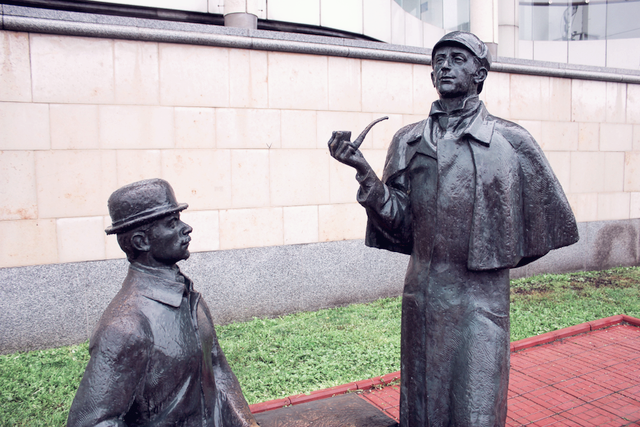
Sometimes when we enter a new story, it’s beneficial to have a helping hand. That’s where the audience surrogate comes in.
In this article, we’ll delve into the nitty-gritty of this concept. We’ll examine what audience surrogates are, why they’re important, and how you can use them in your fiction.
What Is an Audience Surrogate?
An audience surrogate is a proxy for the reader. Such characters think like the reader thinks, ask the questions the reader is thinking, and provide the reader with someone to identify with. Perhaps most importantly, they offer the reader a familiar point of view in an unfamiliar world.
A few examples include John Watson in the Sherlock Holmes series, Harry Potter in the Harry Potter series, and Nick Carraway in The Great Gatsby.
Why Are Audience Surrogates Important?
In school, when a new kid arrived in class, did your teacher ever appoint another student to show them around? Think of yourself as the new kid and the appointee as the audience surrogate. It’s important to help someone explore an unfamiliar setting.
Take Harry Potter as an example. At the start of the story, Harry is a young kid who grows up in the same world we do. Sure, he’s had the unique experiences of being an orphan and growing up in a cupboard under the stairs. But otherwise, he strikes us as an average kid from the same world we’re all from. No single character can ever really stand for the traits, backgrounds, and life experiences of all readers. However, Harry acts as a recognizable stand-in for most teenage or adolescent readers.
Once we cross into the wizarding world, it might’ve been challenging for author J.K. Rowling to communicate the rules of this new place without treading into expository territory. Imagine if Harry already knew about Hogwarts, Diagon Alley, He-Who-Shall-Not-Be-Named, and more, yet Hagrid still arrived to explain all these things to him. It just wouldn’t work.
Fortunately for us readers, Harry is just as ignorant of the world beyond Platform Platform 9 3/4 as we are. Therefore, it’s natural—even essential—for Hagrid to explain the rules to Harry (and, by extension, the reader).
Furthermore, notice how curious Harry is? That’s an essential trait of a good audience surrogate. They must ask the questions the reader is thinking. For example, when characters continually reference the aforementioned He-Who-Shall-Not-Be-Named, readers will naturally wonder who we’re talking about. And since readers can’t ask Hagrid themselves, Harry asks for them.
To solidify the importance of the audience surrogate, let’s imagine an alternate scenario. Imagine the Harry Potter series began at Harry’s graduation from Hogwarts. If he already knew the wizarding world and how it worked, he’d have no questions to ask. The readers would never get a deeper sense of the world because Harry already knows it all.
Audience Surrogates as Identifiable Characters
For this section, let’s look to Dr. John Watson from the Sherlock Holmes series.
Holmes is the main character of this series (it’s named after him, after all). However, Watson is the point of view character.
Some readers might wonder why. If it’s Holmes’s story, why not tell it from his point of view? Why have Watson at all?
Because the story needs an audience surrogate. From a plot perspective, the mysteries wouldn’t supply much drama if we had Holmes’s point of view, because we’d know his deductions step by step. The big reveal at the end of each case, when he connects all the dots, would fail to be so satisfying.
And, from a characterization standpoint, Watson is far more similar to the average reader than Holmes. Holmes is a reclusive genius whose personality borders on antisocial. Watson, on the other hand, has average to above-average smarts and is generally as stumped by the cases as the reader.
Furthermore, audience surrogates like Watson create comedy by reacting to absurd situations in ways that most readers probably would. The Sherlock Holmes books aren’t comedies, but there are plenty of comedic moments when Holmes says something off-color and Watson reacts.
To borrow an example from network television, think of Jim Halpert in the American version of The Office. Whenever a zany character such as Michael Scott or Dwight Schrute does something outrageous, Jim turns to the camera with a wry look. In other words, he reacts the way many people in the audience would.
How to Use Audience Surrogates in Your Work
If you’re writing about an alternate world, an audience surrogate can be a huge boon to your story. Fantasy and science fiction authors in particular will benefit from them, since there will be so much to explore and establish. Surrogates also work well in comedy, especially if you’re relying on absurdism for laughs. Finally, if you’ve got a main character who’s naturally difficult to connect with, consider adding a character who’s easier to identify with.
In Conclusion
Audience surrogates are essential elements of many fictional works. Many stories naturally feature them, but if yours doesn’t, consider using the tips in this article. They might help you add a surrogate of your own.


